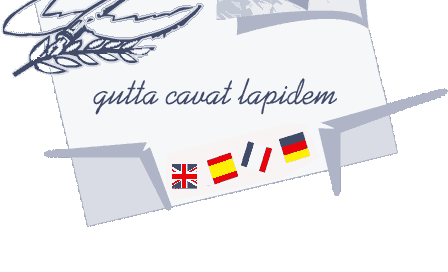Darwish Memorial Lecture
5 October 2008
hosted by PEN Centre Suisse Romand
UN Society of Writers
chez Alfred de Zayas, Geneva
Mahmoud Darwish 1941-2008
In Memoriam
Mesdames, messieurs, ladies and gentlemen
Bonjour and good afternoon
Greetings and excuses from my wife Carla, who is on mission for the Committee of Migrant Workers in Mexico.
Greetings to the members of P.E.N. Centre Suisse Romand, the Vice-President of which, Claude Krul is with us this afternoon
Regrets from our member d’honneur, the great writer Mousse Boulanger – allow me to read her message
Cher ami, merci pour cet aimable projet et son invitation. Malheureusement j'habite dans une thébaïde si lointaine que je ne peux vous rejoindre, mais vous souhaite d'agréables moments et une pleine réussite.
Greeting to the United Nations Society of Writers, the President of which, Karin Kaminker is with us today.
Regrets from many members who have called me this morning to excuse their absence.
Greetings to the members of Millennium Solidarity, the President of which. Vita de Waal is with us today, and who has brought us the homemade Humus and the Palestinian Bread
Greetings to the members of the Spanish Association for International Human Rights Law, the Geneva Representative of which, David Fernandez is with us today.
Greetings to the members of the new ngo Beyahad Ma'an (Together) which aims at an Israeli-Palestinian solution going well beyond peace -.- the true challenge being the shaping of a better future together, and the President of which, Zeki Ergas, also Secretary-General of PEN is with us today.
Greetings to Abdel Wahab Hani, représentant permanent à Genève de l'ONG "Arab Commission for Human Rights" (ACHR), a non governmental orgnaization that frequently takes the floor at UN meetings, most recently at the seminar last week on Freedom of Expression
Ladies and gentlemen,
Let us remember and let us be thankful that Mahmoud Darwish lived. We are thankful for his legacy, as we are thankful for the legacy of the great Egyptian novelist and Nobel laureate for literature, Naguib Mahfouz, who passed away on 30 August 2006. We are thankful also for the impulses of the great Palestinian American Professor and writer Edward Said, a close friend of Mahmoud Darwish, who passed away on 25 September 2003, at the age of 67.
We are thankful for the rich legacy that these great human beings have left us – a legacy that continues inspiring millions
Born on 13 March 1941 in Al Birweh, Galilee under the British Mandate, Darwish died in a hospital in Houston Texas after his third heart operation
He was only 67 years old. He married and divorced twice. He left no children.
His children are his more than 30 books of poetry.
And his homeland was his language, the Arabic language that my wife is currently learning, and which I do not know – yet.
Palestine was Darwish’s metaphor
At once a metaphor of expulsion from Eden, for the loss of Paradise,
Palestine is also the mother from which Darwish came and to which he has returned – He is buried in Ramallah
His extensive work sublimates and transforms the plight of refugees the world over
He is a poet of the homeland, poète du foyer, poète du terroir, poeta de la patria, Heimatdichter
Which reminds me of John Keat’s Ode to a Nightingale
Perhaps that self-same song
That found a path through the
Sad heart of Ruth when sick for home
She stood in tears among the alien corn
Darwish too evokes the songs of birds in his poems – and his lyrics were made into songs.
Exile became one of the sources of Darwish’s literary creation
In march 2000 Yossi Sarid, the Minister of Education of Israel proposed the inclusion of Darwish poetry in the Israeli high school curriculum
Prime Minister Ehud Barak said no – because the Israelis were not yet ready for it. Let us hope that they are readier for it today.
Darwish had always been a fighter for a two-State solution. He wanted to see a free and independent Palestinian State emerge. He opposed the Oslo accords of August 1993 between Yasser Arafat and Yizak Rabin -- not because he did not want peace with Israel. On the contrary, yes, he very much wanted peace. But he did not want lies and equivocations, and he wanted assurances that the Palestinian State would indeed be allowed to emerge, as a viable economic unit, not as a beggar in the world. Indeed, there were grave structural problems with the accords. In a 2001 interview to the New York Times Darwish said “I hoped I was wrong. I’m very sad that I was right.”
When a young man writing poetry in Israel, he was arrested and imprisoned. The International PEN Club interceded on his behalf and he was liberated.
His poem Identity Card, written in 1964, became an Arab affirmation of BEING
Write this down!
I am an Arab
And my identity card number is 50,000
I have eight children
And the ninth will come after summer
Write this down!
I am an Arab
You have stolen the orchards of my ancestors
And the land which I cultivated
along with my children
and you left nothing for us
except for these rocks …
Darwish went to Lebanon, where he became a member of Yasser Arafat’s Palestinian Liberation Organization. In 1988 he wrote the Palestinian Declaration of Independence.
He lived in Beyrouth, in Tunis, in Cairo, in Paris, in Ramallah, where he wrote extraordinary poems of resistance. In a poem entitled State of Siege he wrote unforgettable images:
A woman asked the cloud:
please enfold my loved one
My clothes are soaked with his blood
If you shall not be rain, my love
Be trees
Saturated with fertility, be trees
And if you shall not be trees, my love
Be a stone
Saturated with humidity, be a stone
And if you shall not be a stone, my love
Be a moon
In the loved one’s dream,
be a moon
So said a woman to her son
At his funeral.
In this same poem Darwish adds
During siege, time becomes a space
That has hardened in its eternity
During siege, space become a time
That is late
for its yesterday
and for its tomorrow.
Who was Darwish?
In one of his last poems “Mural” he wrote
Whenever I search for myself, I find the others
And when I search for them
I only find my alien self.
Darwish knew what he meant to the Palestinian People and to the Arab nation
He knew it in all humility
In “Mural” he mused
History makes fun of its victims
And its heroes
History takes a look at them
And passes by
This sea is mine
This moist air
is mine
And my name –
Even if I spell it wrong on the coffin –
It is mine
As for me
Now that I am filled with all the possible
Reasons for departure –
I am not mine
I am not mine
I am not mine.
Ladies and gentlemen,
Mahmoud Darwish never received the Nobel Prize for Literature. I believe that he well deserved it. I also believe that he would have agreed with Naguib Mahfouz’ Nobel lecture of 1988:
I quote:
“In spite of all what goes on around us, I am committed to optimism until the end. I do not say with Kant that Good will be victorious in the other world.
Good is achieving victory every day. It may even be that Evil is weaker than we imagine.
In front of us is indelible proof: were it not for the fact that victory is on the side of Good, hordes of wandering humans would not have been able in the face of beasts and insects, natural disasters, fear and egotism, to grow and multiply.
They would not have been able to form nations, to excel in creativeness and invention, to conquer outer space, and to declare human Rights. The truth of the matter is that Evil is a loud and boisterous debaucherer, and that Man remembers what hurts more than what pleases.”
End of quote
In 2001 Mahmoud Darwish did receive the Lannan Prize for Cultural Freedom. He also received other awards. But a writer does not write for applause. A writer writes because he must – because an inner voice tells him.
Following the death of Darwish. Palestinian President Mahmoud Abbas declared three days of national mourning. He said: “The passing of our great poet, the lover of Palestine, the pioneer of the modern Palestinian cultural project, and the brilliant national leader, will leave a great gap in our political, cultural and national lives.”
When Edward Said died in 2003, Mahmoud Darwish wrote two beautiful articles on him, one appeared in the Palestinian daily Al-Ayyam, the other in the January 2005 issue of Le Monde Diplomatique. Many of the truths he spoke about Said, would apply to Darwish himself.
We have come here to render homage to Darwish. Let us give him honour by reading him more -- in Arabic, in English, in French, in Spanish, in German.
That is what we are here -- this friendly, sunny afternoon.
Thus it is my pleasure to pass the floor to Claude Krul Vice-President of PEN Suisse romand, followed by Jacques Hermann, followed by Zeki Ergas, followed by Abdel Wahab Hani, who will read Darwish in Arabic – and by all of you who would like to express your own feelings about Darwish, read a poem by him, or a poem about him.
I thank you – |






